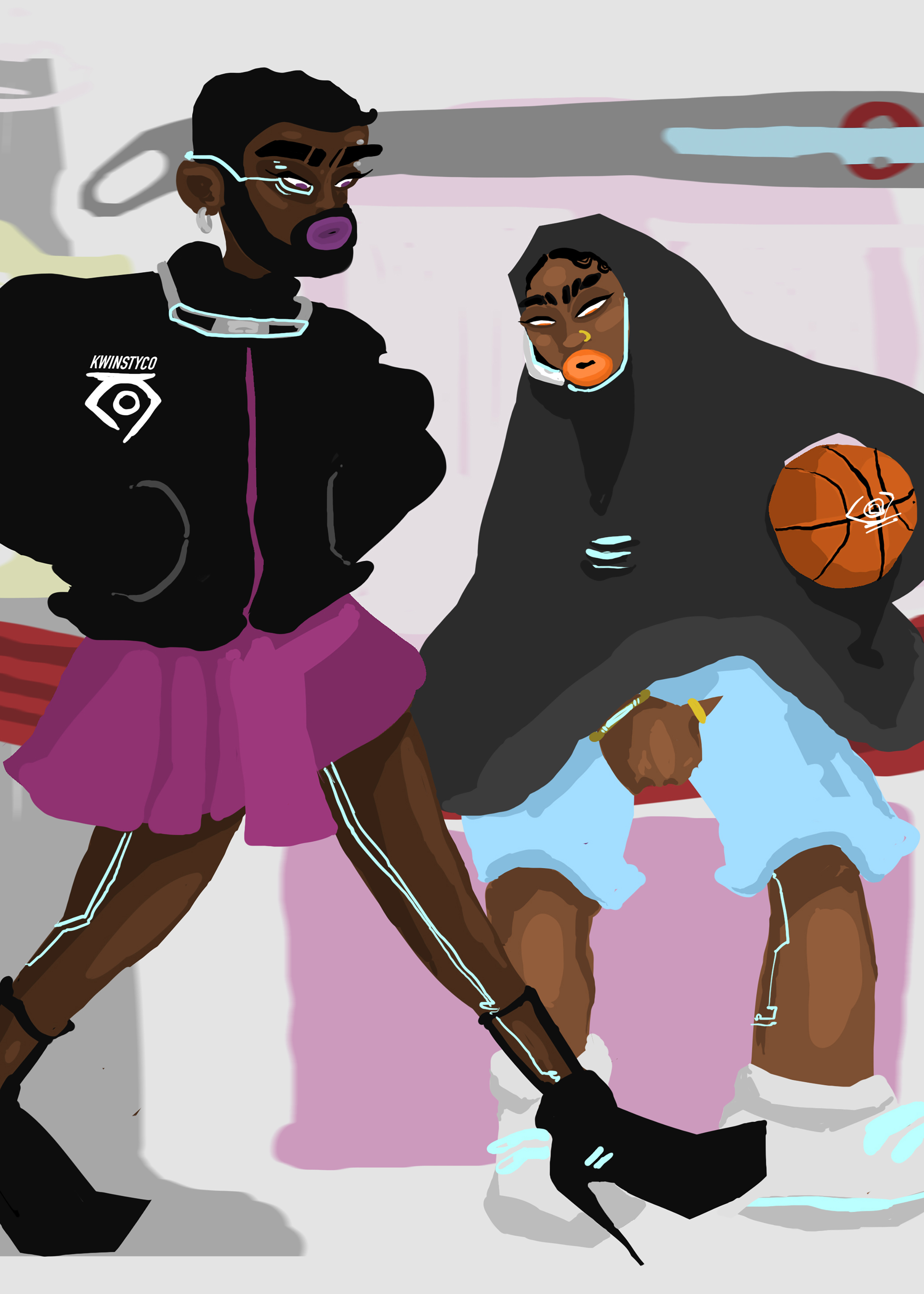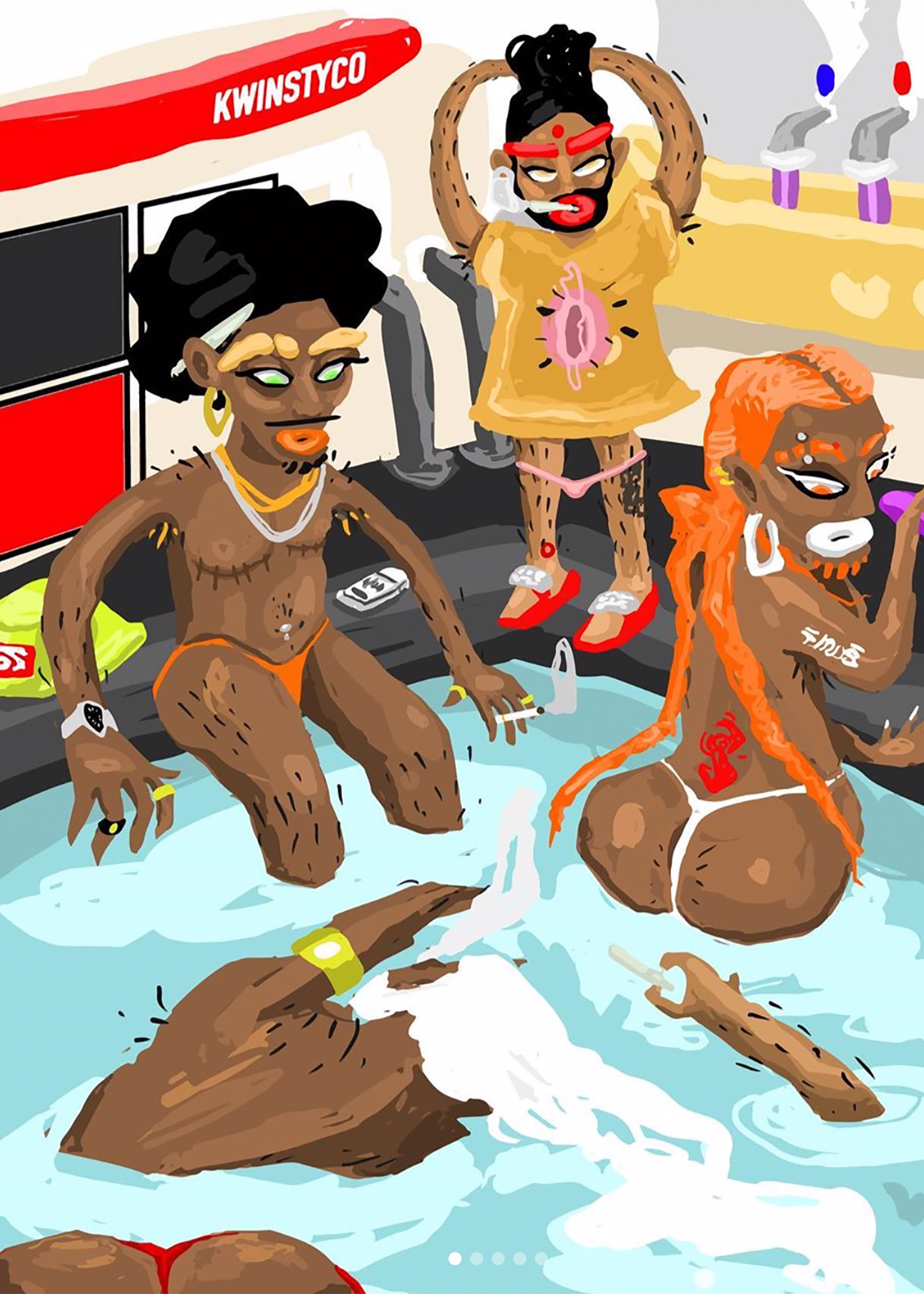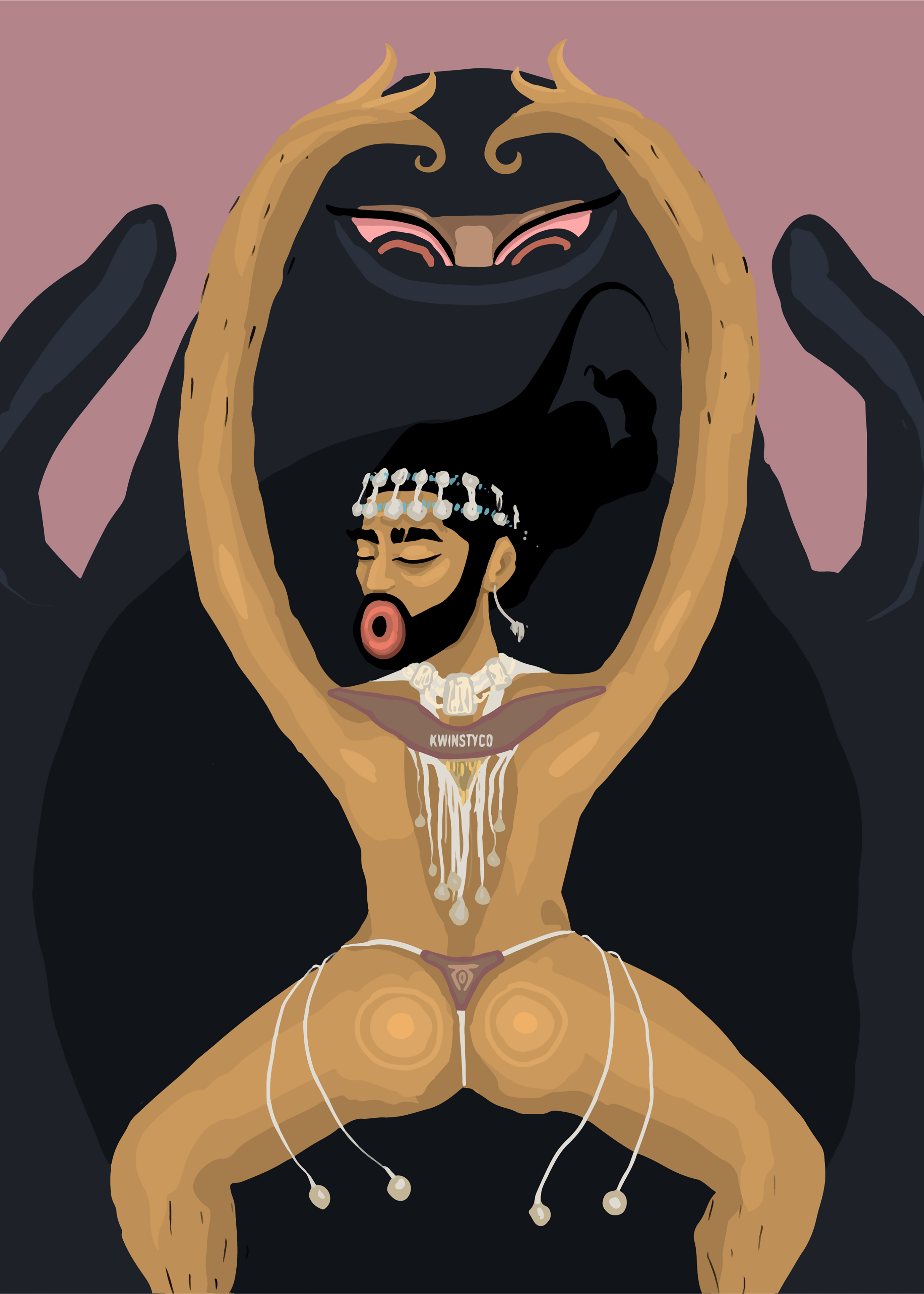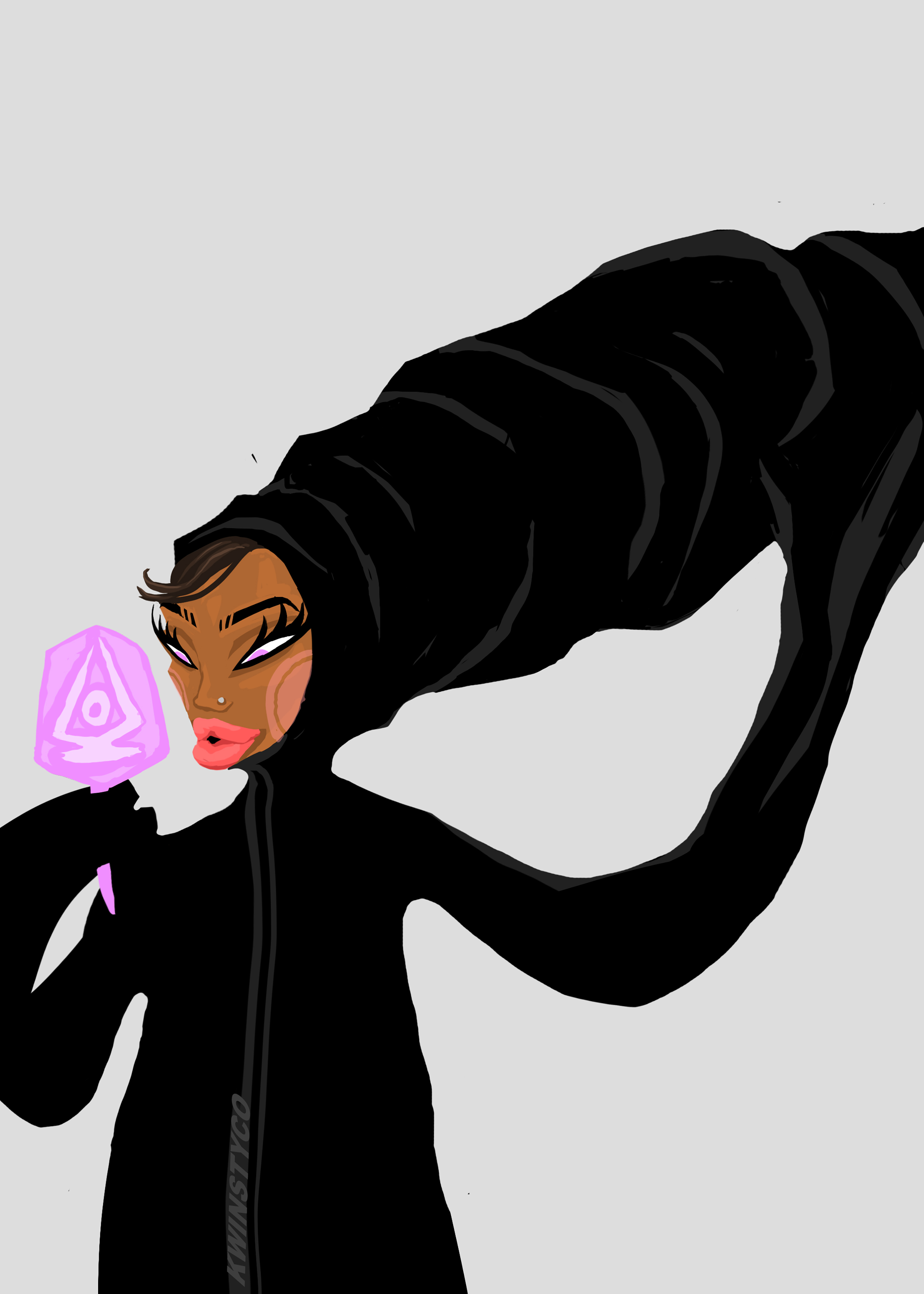OMAR AQIL ︎
Discussing middle-eastern queerness thought poignant illustrations
![]()
“As much as this is an unpredictable and depressing time I think the only thing you can really do is create” is how Omar Aquil is responding to isolation from his mother’s house in London where he was raised and now spends his time off Leeds Art University where he studies illustration.
Omar sees talent as something highly empowering, “I find it so self-fulfilling and I hope to continue as much as I can” says about his illustration career that draws a lot from his Somali and Yemeni origins and the deeply religious atmosphere in which he grew up as a queer person.
![]()
“My main influences are the things I feel and I’m scared to draw, things that have been traumatic in some way and are still in the back of my mind” illustrates Omar and goes on explaining how this time of confinement in particular gave him a chance to release his past experiences, “when it’s personal my illustration is really spontaneous, I just want to let it out there”. By freeing his past in his illustrations, Omar addresses a very niche subject that is the queer reality in middle-eastern environments and religious territory. Omar is telling a story that is missing from the illustration scene right now but that absolutely needs to be told, motivating him to work even harder and expose even more his personal experiences. A strong and poignant voice like Omar’s speaks loudly in an art section that has been increasingly growing in the past years as documented by The Illustrator’s Survey 2019/20 where 50% of illustrators saw their workload implement decisively.
![]()
Omar has “big hopes and big plans” for his career and explains “there’s no final point of success, you just have to always take it to the next level”. He’s on the right path for growth and is now trying to gather an audience that will understand and learn from his dearest subject of Arab queerness while cutting off some of his mainstream works that reached the attention of names such as Rihanna in the past but are not fully representing him. Beni Bischof and Joan Cornella are two of the artists he admires the most for their cutting style but explains “in terms of perspective, I don’t really identify with anyone”.
“The future is really just about exploring and experimenting with whatever I have access to” goes on Omar while exposing dreams of expanding to fashion and music industries while finally having time to focus on his work during lockdown. Omar is looking straight ahead of him with spark in his eyes and a lot of hard work to do to reach what he describes as “being able to do what I love and making money out of it” — which in other words, is success.








